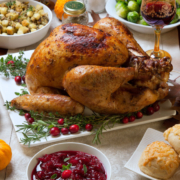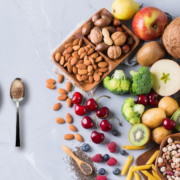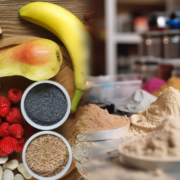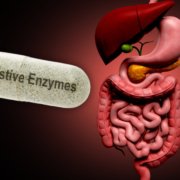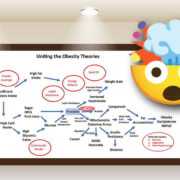Dr. Chet’s Health Memos
 If it’s in the health news today, I’ll be writing about it as soon as I read the research, both old and new. With my email Health Memos, you’ll know more about making lifestyle choices that will help you get and keep good health. These free, concise updates on health are emailed to subscribers twice a week. Subscribe today and get a free MP3, in English or Spanish, of Dr. Chet’s Top Ten Tips—Small Changes for a Healthier Life.
If it’s in the health news today, I’ll be writing about it as soon as I read the research, both old and new. With my email Health Memos, you’ll know more about making lifestyle choices that will help you get and keep good health. These free, concise updates on health are emailed to subscribers twice a week. Subscribe today and get a free MP3, in English or Spanish, of Dr. Chet’s Top Ten Tips—Small Changes for a Healthier Life.
Life Is Change
Do you ever think about your life in five or ten years or even longer? Doesn’t matter how old you are today, whether you’re 30 or 70. What will your life be like? Let me define it more clearly for you with this example. After Thanksgiving, Paula began setting up the Christmas tree. As she […]
Yes, the Nutrients Are There
My question is whether you get any nutrients besides sugar and fat from those marshmallow-covered yams or the green beans swimming in condensed mushroom soup and topped with fried onions from a can. The research on cooking techniques and retention of vitamins, minerals, and phytonutrients in vegetables and fruits is not extensive but overall, the […]
Nutrients in Holiday Foods
I hope you had a great Thanksgiving. With all the traditional and maybe not-so-traditional foods associated with the holidays, did you wonder how you fared from a nutrient perspective? We had a few of those foods that make you wonder: cheesy grits, corn pudding, and cranberry chutney to go along with the turkey. And don’t […]
Fiber: Food or Supplements?
We don’t seem to eat enough whole or minimally processed plant foods, so the researchers were trying to discover whether getting fiber, especially insoluble fiber, was better from plant material or whether taking fiber in supplement form would suffice. Researchers approached the question from the perspective of other beneficial nutrients that might be found in […]
Natural Fiber vs. Added Fiber
In a recent paper, researchers reviewed the literature to see whether there are benefits to eating more plant foods or whether adding insoluble fiber to processed foods would be an adequate substitute. But first, a review. The Recommended Dietary Intake of fiber is 25–35 grams per day; American adults eat only 10–15 grams per day. […]
How Can Vaccinations Reduce Alzheimer’s Disease?
In reading possible explanations for the potential benefits of flu vaccinations for reducing the risk of Alzheimer’s disease (AD), it always comes back to reducing inflammation. Further, it isn’t just the flu vaccine that seems to have that effect. Pneumonia, DTAP booster, shingles, and others have also been studied with similar results: vaccinations seem to […]
Flu Shots and Alzheimer’s Disease
One of the benefits of large cross-sectional studies, especially in the age of electronic medical records, is that medical tests and treatments can be examined while examining diagnoses at the same time. The Veterans Health Administration is one of many medical databases that can identify relationships between health factors and the onset of disease. In […]
Timing for Enzymes, Prebiotics, and Probiotics
My digestive system has undergone changes—it doesn’t work like it used to work. Hence, I’ve been paying closer attention to digestive supplements. My voice had been getting raspy, and I had occasional reflux; I was concerned the two were related. I had an endoscopy and found I was correct. They also found a hiatal hernia. […]
Timing May Be Everything
I’ve recently gotten a few questions on the timing of dietary supplements. That means it’s time for a review. The first category would be multivitamins-multiminerals (MVMM) and other single- or multi-nutrient vitamin-mineral combinations such as calcium plus magnesium and vitamin D. The best time to take them is during or after a meal. The reason […]
Another Theory of Obesity
It’s been a while since someone has proposed a new theory of obesity. I’m still a believer in “a calorie is a calorie” but it’s always good to find out what may be driving us to overeat. The latest addition is the Fructose Survival Hypothesis for Obesity. The diagram above was taken from an article […]


